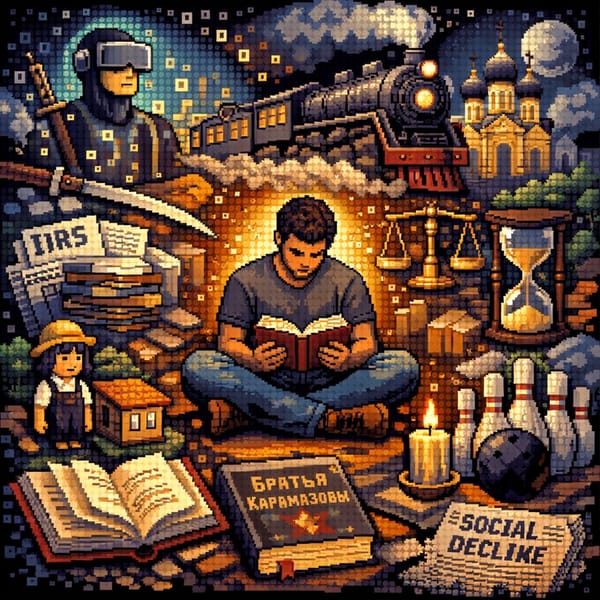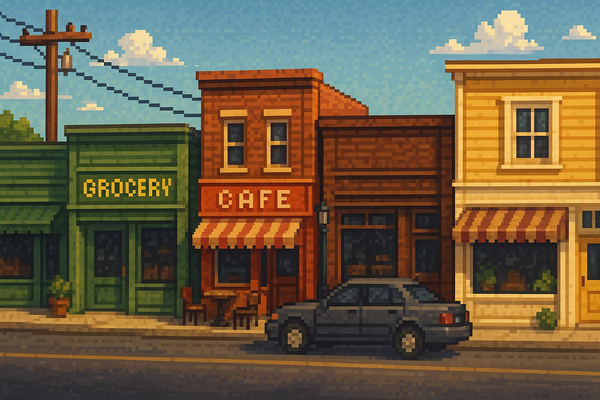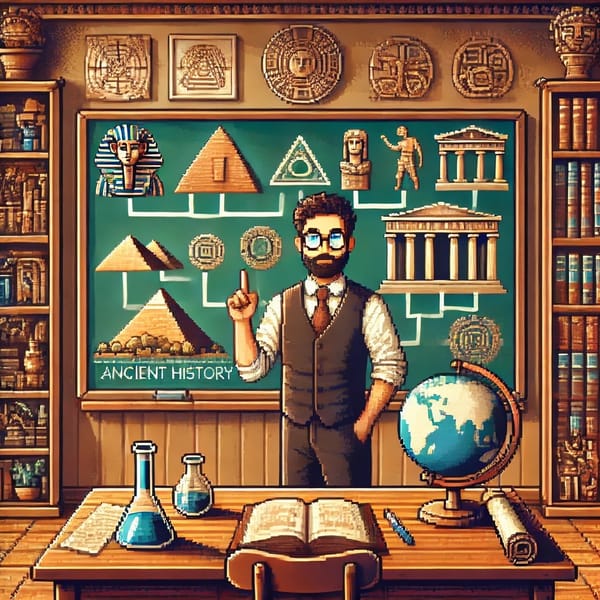The Right Word
Language is fascinating. We are constantly immersed in thoughts defined by our current language and part of a culture that has grown up in our language. Despite this immersion, we don’t give much thought to the impact of language.
The language we speak, in some cases, can be limiting. 1984 makes some good observations on this topic:
Don’t you see that the whole aim of Newspeak is to narrow the range of thought? In the end we shall make thoughtcrime literally impossible, because there will be no words in which to express it. Every concept that can ever be needed, will be expressed by exactly one word, with its meaning rigidly defined and all its subsidiary meanings rubbed out and forgotten. Already, in the Eleventh Edition, we’re not far from that point. But the process will still be continuing long after you and I are dead. Every year fewer and fewer words, and the range of consciousness always a little smaller. Even now, of course, there’s no reason or excuse for committing thoughtcrime. It’s merely a question of self-discipline, reality-control.
Winston, the protagonist, is eating lunch with his friend Syme, who has been working on the latest dictionary for Big Brother's language, Newspeak. The goal is to limit vocabulary to limit what we can conceive. If you don't have a word for "revolution", it is hard to communicate or organize one!
Physical items are easier to translate and understand, but intangible items are far more complex. Arabic has ~90 words for love, many representing different stages of love[1]. English has only one. With various means of expression, you experience the world differently[2]. Studies have even shown that people who speak multiple languages have different values depending on the language in which they are asked questions. They express themselves differently since they have different tools at their disposal.
A lack of proper vocabulary can frequently lead to oversimplifications. Art is a great example. In Breakfast at Sotheby's, Phillip Hook observes that art can only sell if placed into an '-ism'—cubism, modernism, impressionism, surrealism, realism, etc. Instead of recognizing a piece's merits or styles, people oversimplify it with a more general description. This happens in emotions, too. It’s why the feelings wheel exists. To help you get from feeling ‘happy’ to understanding the feeling more accurately defined is ‘hope’. When you learn and can pinpoint these new feelings, it even enables your brain to create new emotional experiences. That article compares emotional granularity to wine tasting. As you learn more, you can pick up subtle variations you would have previously missed.
Discovering a new word that ties to an intuition you already had is incredibly satisfying. Moving through the world, you may feel an intuition about an idea without a way to articulate it. Even in my last post, I referenced the concept of "kind" and "wicked" environments, which I pulled from the book Range. Before that book, I had an intuition that the world was too complicated for AI to reach human-level functioning easily, but I didn't have the correct phrasing to explain why.
We take language for granted because it is all around us. We don't see the ways that it may be limiting us. Vocabulary usually gets a bad rap[3], but could completely change the way you emotionally experience or understand the world. To end with the words of Will Durant:
For words are to thought what tools are to work; the product depends largely on the growth of the tools.
P.S.
I have asked around, and I don't think there is a word for that 'aha' moment when someone describes something, and you realize it is something you have felt for a long time. In the spirit of the post, I have decided to make up my own word for the phenomenon. I discussed it with ChatGPT and think the word for this sensation should be "nomenclave". In Latin, "Nomen" means "name" and "clave" means "key". The "name", the new word, gives you the "key" to unlock that new perspective symbolically. Please use this in your future conversations accordingly.
- I would find The Bachelor far more interesting if they had this vocabulary level instead of being limited to “I think I am falling for you” and “I love you”.
- Language also creates a culture. In Unreasonable Hospitality, Will Guidara discusses creating their own words to form their restaurant's culture. By creating a new word, it allowed the team to define exactly what it meant. Some would argue this is a bit cultish.
- I do not endorse using unusual words in casual conversation. That makes you a jerk, but you can use them to enhance your understanding.



